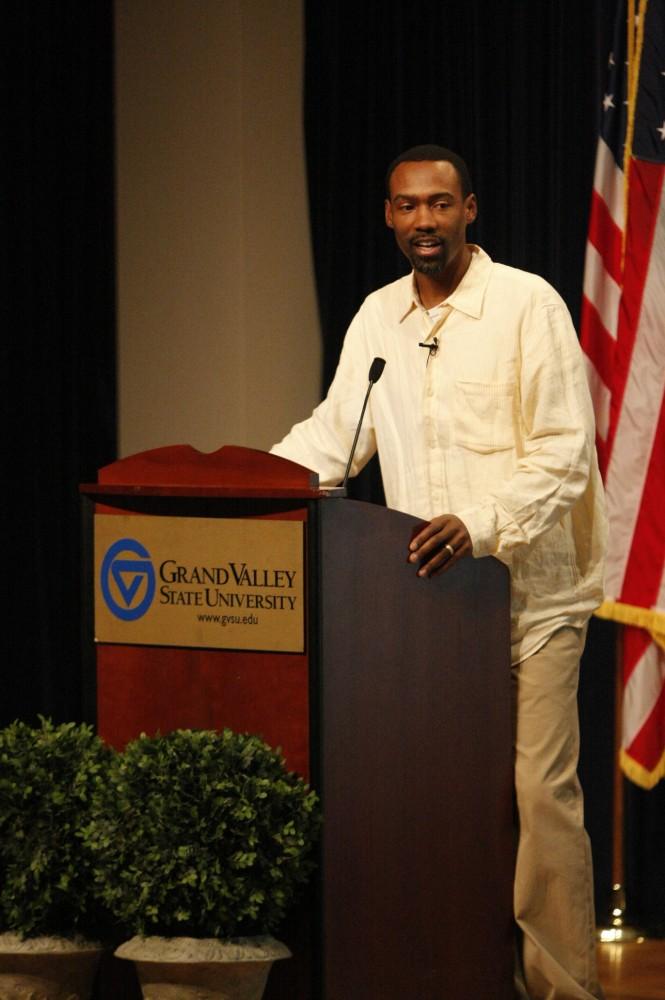Former major leaguer visits GV

Former Major League Baseball player Doug Glanville speaks to student about life, baseball, and business.
Nov 8, 2010
People often advise students undecided on a college major to choose a path immersed in a subject they love.
But former Major League Baseball outfielder Doug Glanville said sometimes having the right degree is not enough.
“You could have the greatest job in the world and still have all of these doubts about where you should be and what else you should be doing,” he said.
Glanville, who played for nine seasons with four different teams in the MLB before retiring in 2005, spoke about his journey through baseball during his lecture, “Life, Baseball, and Business” Thursday in Loosemore Auditorium as part of the Office Multicultural Affairs’ Professionals of Color series.
Glanville majored in systems engineering at the University of Pennsylvania. He broke down the fundamentals of the major into three ideas. “As it is” examines the current state of a system. Then, the engineer goes to either “as it will be,” which determines how the system will end up if it continues along the same path, or “as it should be,” which examines the desired outcome of a system and the necessary steps to achieve it.
Glanville used baseball to describe how the basic fundamentals of system engineering can apply to life in a holistic approach.
“You look at baseball. As it is there’s a steroid issue,” he said. “Where is it going if we let it go (and) leave people to their own devices? Well, maybe you end up playing with a bunch of super heros on the field … How do you think it should be? It should be a clean game. It should be fair. It should be balanced.”
Glanville said he applied these principles after he left baseball behind. Glanville played nine seasons for four different teams and wrapped up his career with 1,100 career hits. He worked for ESPN as a baseball analyst and released a book, The Game From Where I Stand, an inside account of different situations and scenarios that occur within a baseball player’s life. Glanville has made a rather successful transition into life after baseball.
But he said such is not the case for most players.
“I retired from baseball when I was basically 34 years old,” he said. “I had 15 seasons behind me at that point, so I had a lot of experience, and this is the one area I was focused in. And all of a sudden, I’m outside of the game and it’s like, well, you’re expired. You’re down. This is it. What are you going to do now?
“A lot of players don’t really have the answer to that question,” he continued. “They’re trying to figure it out, just like many students here are trying to figure out what’s their passion and what do they do when they graduate. … You have the same type of questions that follow you.”
Glanville spoke for almost an hour before holding a brief question and answer session to wrap things up.






















